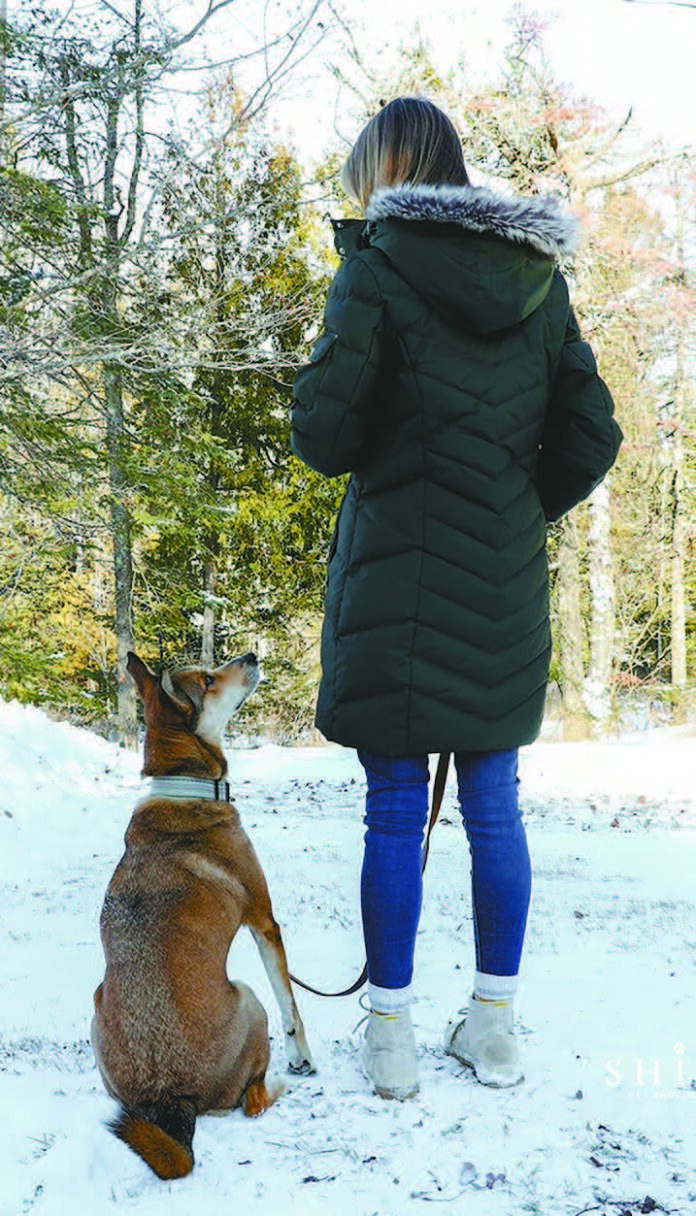Our border collie, Loki, lives up to his mischievous name. Though age has mellowed him somewhat, he still enjoys herding people out of the house, barking more than we’d like, and guarding his ‘chewies’ with unmatched intensity. So, when Kaitlynn Mahlberg, founder of Northwood Dog Training, reached out to share her expertise, I couldn’t resist asking her about one of the most enduring clichés in dog training: Is it really true that you can’t teach an old dog new tricks?
“We’ve got 11-year-old dogs multiple times, and we were able to transform them in a remarkable way,” replied Mahlberg, who has been training dogs for eight years.
She shared a story about a dog with a striking coincidence—not only was it also a border collie, but it, too, was named after a Norse god. Odin had been calm around other dogs until a traumatic attack left him highly reactive, barking and lunging whenever he encountered them.
Mahlberg guided Odin and his family in practicing calmness and learning to ‘take space,’ starting from a distance and gradually closing the gap. Through this process, Odin learned that there was a better way to respond.
“We showed him that there’s a better way to handle things—to make himself feel better—because barking them away isn’t going to cut it. They’re going to stay there,” the trainer said.
Before Mahlberg ever trained a single client’s dog, she found herself facing a challenge with her own. As a teenager, she adopted a dog named Lucy who had behavior issues, which led her to explore dog training and uncover a natural talent she hadn’t realized she possessed. Years later, working as a lead trainer at another facility, she recognized that her ability to communicate with animals could truly make a difference.
While working in her role, Mahlberg began to notice a gap in the typical basic obedience programs. Families were struggling with reactive dogs, resource guarding, and other challenging behaviors, and she knew she could provide the additional training to address those needs.
Today, Mahlberg and her team travel directly to clients’ homes across a vast service area that stretches from Two Harbors to Saint Paul and into Wisconsin. They craft customized training programs that not only reshape behavior but also strengthen the bond between people and their dogs.
“We really do believe the family that trains together, stays together,” said Mahlberg. “Folks have said that they have gotten rid of dogs in the past just because there wasn’t a resource like this available yet.”
Mahlberg reports that leash pulling, reactivity, and excessive barking are the top behavioral issues she’s asked to help with. She also has experience addressing a wide range of other challenges, from basic commands like sit, stay, and come to intermediate issues like jumping, nipping, digging, resource guarding, and chewing.
Northwood Dog Training also offers specialty trainings, including off-leash property boundaries, desensitization to sounds and objects, and overcoming fears like cars. Mahlberg has also worked with dogs with disabilities, such as blind, deaf, and amputee dogs.
Traveling to clients’ homes allows for a deeper level of training. According to Mahlberg, “Training your dog at home alleviates so much stress for the dog. You usually get faster results because you’re working with the triggers they deal with every single day.”
Mahlberg’s training approach relies heavily on establishing a strong line of communication between owners and their dogs, focusing on positive behaviors rather than the negative.
“We end up unlocking a whole new world of communication when we teach the family the word ‘yes,’ because that is the thing that gets the dog to want to do things more,” said Mahlberg. “Just like us, we get so excited when we’re told that we’ve done a good job and when we get paid for doing that job.”
She added, “We come in and we just make sure that their emotional needs are being met. And then the behaviors decrease and go away because we’re actually fulfilling their brains. And so that’s our goal: to make sure all the dogs are fulfilled and happy.”
Clients receive a written program based on their consultation and an e-book training guide. Families also get a three-month subscription to receive what Mahlberg called “Canine Mind Control Powder.”
“We don’t use typical treats during lessons,” she explained. “We use the clients’ kibble that they provide for their dogs. The Canine Mind Control Powder, which we just take a pinch or a teaspoon of and sprinkle it over what we’re using for that day’s lesson.”
In addition, families have the opportunity to take part in three complimentary group lessons, which are held Sunday mornings. These sessions offer valuable hands-on training in a supportive group environment.
“They can get advanced training that way. They can get those extra socialization points and beyond just the obedience and skills throughout the home, and the behavioral problems around the home, because oftentimes socialization is a whole other thing,” said Mahlberg.
As she had me convinced that old dogs can indeed learn new tricks, I asked another burning question—one that Mahlberg had been surprised to hear from many clients.
“People often ask if there is hope for their dog,” she said. “There’s hope with every single dog. No doubt.”
I let Loki know that there is hope for him yet, and he gave me the side-eye. I probably interrupted him while he was plotting his next devious move—like stealing my socks after pretending to fetch them or deciding where to hide a rawhide in plain sight. While we certainly have a lot to work on, there are some of Loki’s quirks that I wouldn’t change for the world.
Request a free consultation at northwooddogtraining.com or call 218-409-6333. Mahlberg can also be reached via email at northwooddogtraining@gmail.com.




